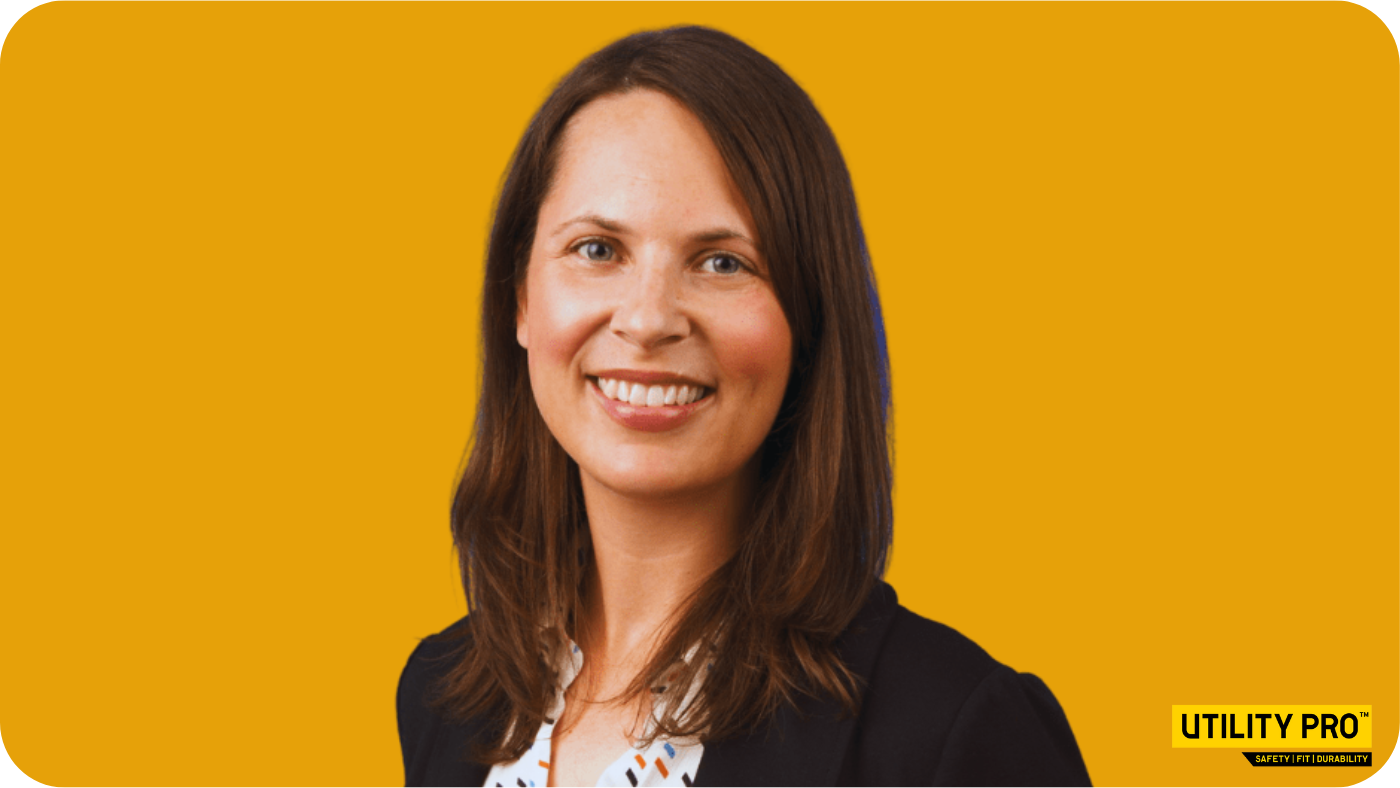Your Cart is Empty
🔥 Free shipping for orders over $50

Abby is a practical, creative, innovative and influential safety and risk management professional.
She currently serves as the Chief Risk Officer at Insurate
While working in a construction office during high school, I noticed two guys were never in the office. I learned they were “the safety guys,” so I asked them to tell me more about their jobs. They suggested furthering my education in a master's program offered at the college I completed my undergrad. While earning my master's in environmental health and safety, I chose to focus on finding a job in construction. I had my first construction safety job lined up a month before graduation, and the rest is history!
Being able to see the impact of something I’ve worked on, whether it’s an award for a project delivered safely and on time; seeing a mentee crush a speaking opportunity I sponsored them on; receiving awards myself after pulling together lengthy applications; and the smaller moments of seeing a safety or risk management concept click with someone. Safety and risk management is rewarding because of the opportunities to assist people in varied parts of an organization and the industry itself.

As Paul Wellstone famously said, “we all do better when we all do better.” When an organization has a level of psychological safety that empowers workers to bring their real concerns to those who can help, and they implement solutions related to those concerns, the safety of all workers in that workplace is impacted positively. In the safety profession, it is important to understand the needs of a diverse workforce because we are often advocating and strategizing for the workers, whether it is PPE access, training, and education, or responding to an injury or incident.
Stop blaming the pipeline and build your own pipeline of talent by going outside of your comfort zones. This means establishing new relationships with colleges, associations, and other groups to identify barriers to women entering traditionally male-dominated fields. After that, enact meaningful programs and approaches to ensure your workplace is a top choice for women.
Cynically, it seems many do so only to have a new “flavor of the month” for safety communication. This indicates a company not identifying what their workforce prefers for communication or what is important to convey and when. When an employer can identify these terms, then they can actively seek information and data that will be meaningful to their workforce.
There has been a shift in buyers as millennials and Gen Z are promoted to positions where they manage the budget for safety equipment. More studies are showing that this generation of buyers is focusing on environmental, social, and governance (ESG) when making large purchasing decisions. Not only do you need to market your products, but also market what your organization is doing to be a safe employer, environmental steward, and other ESG elements.
Absolutely. Many women don’t consider construction because of the horror stories of sexual harassment and other aggression experienced by women in the field to this day. The industry is doing better, but there are still many employers who aren’t aware of what’s really going on at their worksites. Policies related to parental and family leave and flexible scheduling are not unique to women but more women are making employment decisions with the added stress of family or elder care responsibilities. Employers with policies that support workers in these stages of their life will win the talent race!
Honestly, not much has changed that directly impacts women workers or safety professionals. The pandemic really threw a wrench into the lives of many women in the workplace, causing new challenges beyond the ones identified in the report: PPE fit, workplace violence, and women in executive roles in EHS. Workplace violence stats have slightly changed, but not enough to take homicide out of the top two causes of death of women in the workplace. What I think has changed is the climate for further discussion on these topics. As diversity, equity, inclusion, belonging, and justice topics become more prevalent in workplaces, conversations about where women need better resources for safety have a place. This may sound great, but I think the time for discussion has passed, and we need ACTION.
As little as possible! I’ve educated myself on rest in the past few years and realized many of the things I thought were hobbies were not. It may be a midlife crisis, but as I learn more about what true rest is, I’m learning more about what I actually need in my downtime. My most joyful times off the clock are watching my daughter try new activities and indulging the foodie side of my family!
Fay Feeney, risk management extraordinaire, is at the top of my list. She’s become a close friend, and I value my conversations with her. I’ve enjoyed learning from people younger than me in EHS and risk and now consider a past mentee, Lindsay Bell, a mentor, friend, and role model. As far as role models, I’ve never met in person, I hang on to every written word from Oliver Burkeman, author of Four Thousand Weeks, his book changed my perspective two years ago. I’m lucky to have a circle of friends I look up to and challenge me through healthy and respectful conversation.
For so many people, 2022 was a long and hard year! It seems despite all the technology, privileges, and advancements in the world, as human beings, we are still struggling with challenges that hinder us from reaching our greatest potential.

| Item | Price | Qty | Total | |
|---|---|---|---|---|
| Subtotal | $0.00 | |||
| Shipping | ||||
| Total | ||||